‘Green Thinkers book club discusses Doughnut Economics by Kate Raworth’ 
Seven of us met on Thursday night to discuss Doughnut Economics. It was a balmy October evening in Newcastle, and we sat outside for most of the discussion, imagining that we lived in Barcelona-on-Tyne, rather than the North East of England.
Unusually for our group, there was almost unanimous agreement. In this case, that Doughnut Economics is a great book and one that we enjoyed reading. First thoughts included: ‘positive and constructive’, ‘it made me stop and think for the first time in five years’, and ‘a powerful tool we can use’.
The doughnut model itself provides a single, powerful visual image that pulls together many of the discussions we have had at Green Thinkers over the last five years: combining the social and environmental dimensions of sustainability. James Dixon, who heads up the sustainability department at Newcastle Hospitals, said that he could immediately incorporate the doughnut image into the hospitals’ sustainability engagement plans as it would resonate with medics and managers alike.
Ruth Hayward, who works with community groups in the North East, inspiring them to be more sustainable, said that she could use the model in her facilitation sessions. She imagined presenting a large illustrated visual image of the doughnut with drawings of people: in the middle people are trapped in poverty (for example homeless in the UK or those who have to walk miles for water in developing nations), but inside the ring, they thrive, living sustainably. She said that she would also include images of the environment: illustrating a degraded environment around the outside, and a biodiverse environment in the ring – linked to the activities of people. Whether or not she would have an equivalent picture of people on the outside of the ring, engaging in overconsumption she wasn’t so sure, as images such as flying, which those who over-consume do on a regular basis, could be seen as criticising those who fly infrequently.
I asked the group which of the other images presented in the book stood out?
Gareth Kane, a sustainability consultant and author of several books on the subject, was drawn to the butterfly model of the circular economy developed by the Ellen MacArthur Foundation that is presented in Chapter 6, ‘Create to Regenerate’. We discussed how Braungart and McDonough first urged designers not to mix biological and technical nutrients together, in what they termed ‘Frankenstein products’, in their book, ‘Cradle to Cradle’.
The Environmental Kuznets Curve also appears in Chapter 6. One of the benefits of the book for the group, none of whom had studied economics, was that it provided an introduction into a topic that influences every part of our lives and work. Some of us were surprised to discover that mainstream economic theory proposes that a country must become increasingly polluted until it can afford to clean up. If I was a farmer in the developing world and was presented with a choice of polluted air, water and soil, offered by Kuznets, or an economy that is ‘regenerative by design’, I know which one I would go for. The power of Doughnut Economics is that these development options are framed side-by-side as visual images.
Richard Clarke, an environmental consultant at legislation specialist CEDREC, talked about the graphs in Chapter 7 that compare the false-hope of many economists – never-ending exponential growth - with an S-curve that represents growth-agnosticism. If you put the first graph in front of an economist, and ask them what happens next, will they really draw a line that shoots up off the page?
We went on to discuss the ‘green growth’ debate raised in Chapter 7. Some of us were more optimistic than others that the world can decouple pollution from growth fast enough to avoid environmental collapse. Gareth Kane, a self-declared optimist, gave the example of Interface, a flooring company he has advised. The late CEO, Ray Anderson, set a target to transform his energy intensive and polluting organisation, into one that has zero emissions and makes new carpet tiles from old. Today they have largely achieved that target, and now have a goal to restore the natural environment rather than just doing less harm.
I said that while I fully recognise that there are shining examples of sustainability in the corporate world, for every award-winner, there is a multitude of lesser-known organisations who will mercilessly exploit people and the environment to undercut them. To me, organisations position themselves in different market niches, in the same way that organisms evolve to occupy every ecological niche. We need governments to set clear boundaries, defining the rules of the game.
Mary Argyraki, who teaches sustainability at Sunderland University, was drawn to the illustration of the embedded economy in Chapter 2 that depicts the realms of household, market, state and commons as having equal value in meeting people’s needs. She said that just as households are central to one’s life, we need to think daily how we manage our households and apply similar principles to commons and markets. For example, if we had to dump excess food in our garden, rather than the council removing it, we would think twice about how much we cooked and threw away.
Mark Ridsdill Smith, who runs Vertical Veg, an organisation dedicated to helping people to grow food in small urban spaces, said that his organisation is operating in the ‘commons’ sphere and that he is amazed by what people will do for nothing. Examples of this can be seen in Newcastle’s parks, where bands of volunteers assist the cash-strapped council in creating and maintaining beautiful flower beds and borders. Such ‘common’ contributors contribute much.
I agreed that the way these four realms are portrayed in Chapter 2 cuts through the false-choices between left and right in politics. For example, why do we have to choose between a privatised railway and one wholly controlled by the state? Why not have the best of both worlds, and set up an entrepreneurial social business to run the railways. Such an approach would be advocated by Muhammad Yunus, who wrote the previous book we discussed, ‘A World of Three Zeros’.
The contrasting illustrations of ‘rational economic man’ and a crowd of diverse people, as illustrated in Chapter 3 resonate with me. I said that I hate the way the media and politicians label people as consumers. I would much rather think of myself as a citizen or just a human. I will never forget the day in October 2008, immediately after the financial crash, when Boris Johnson opened Westfield shopping centre in London; he told the assembled crowds and reporters to ‘spend, spend, spend’, to lift the capital’s troubled economy out of recession. Perhaps Johnson views Londoners as hamsters that must run faster and faster to keep the proverbial economic wheel spinning: exacerbating both pollution and the debt crisis. Raworth points out in Chapter 3 that the words and images society uses to describe itself matter. She quotes Robert Frank who said, ‘our beliefs about human nature help shape human nature itself’.
The last chapter of Doughnut Economics is entitled ‘We are all economists now’, and Raworth quotes Gandhi: ‘Be the change you want to see in the world’. For all of us gathered, sustainability is at least part of our job, so to some extent, we feel part of this change. However, the visual images Raworth presents in the book will help us to get the sustainability message across whether we are teaching, consulting or developing an organisational strategy. Also, we should evaluate our own lifestyles, and whether we are living within the dough, or eating too much cake.
By Marek Bidwell
October 2018
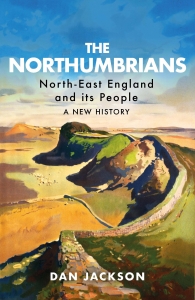 I recently read ‘The Northumbrians’ by Dan Jackson and loved it. It opened my eyes as to how history has shaped the place I am proud to call my home.
I recently read ‘The Northumbrians’ by Dan Jackson and loved it. It opened my eyes as to how history has shaped the place I am proud to call my home.
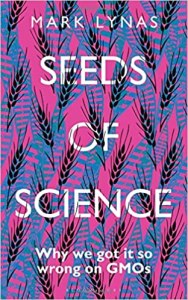
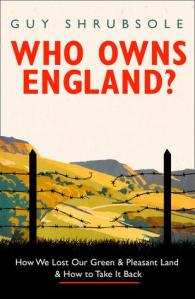
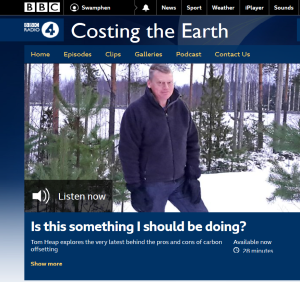
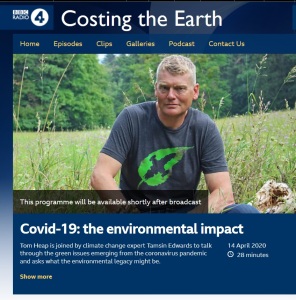
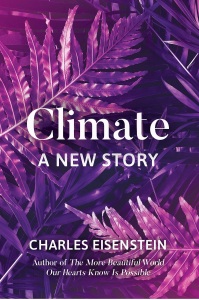
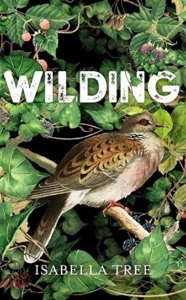
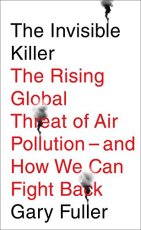 book and our first on air pollution, a subject that has been in the news many times over the last few years due to the diesel emission scandal and the UK government losing three air pollution cases to ClientEarth for breaching EU pollution limits.
book and our first on air pollution, a subject that has been in the news many times over the last few years due to the diesel emission scandal and the UK government losing three air pollution cases to ClientEarth for breaching EU pollution limits.
